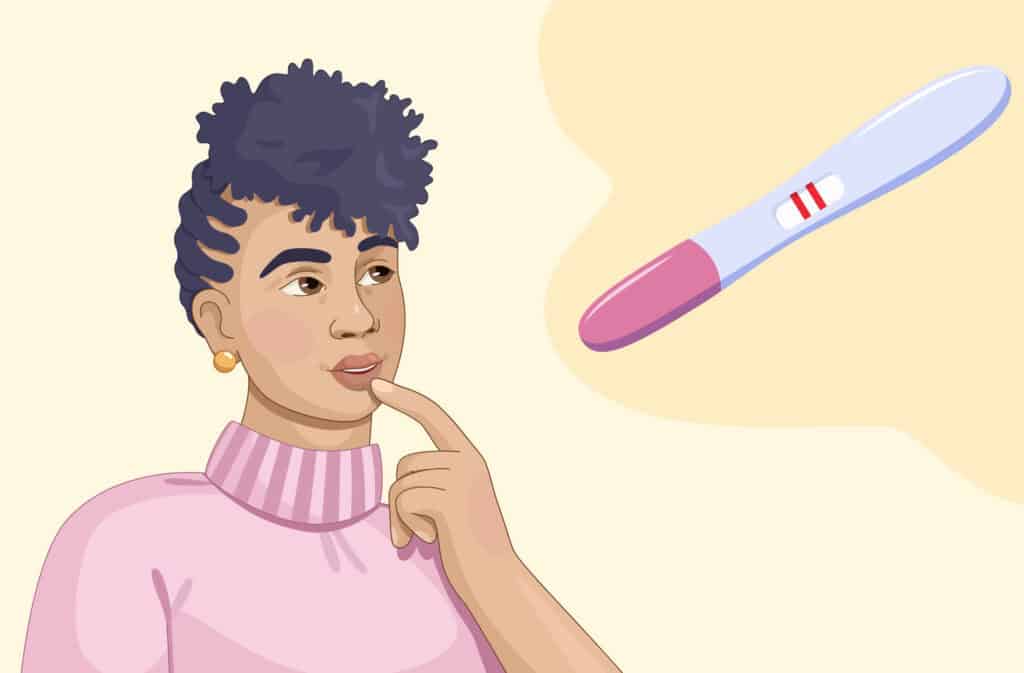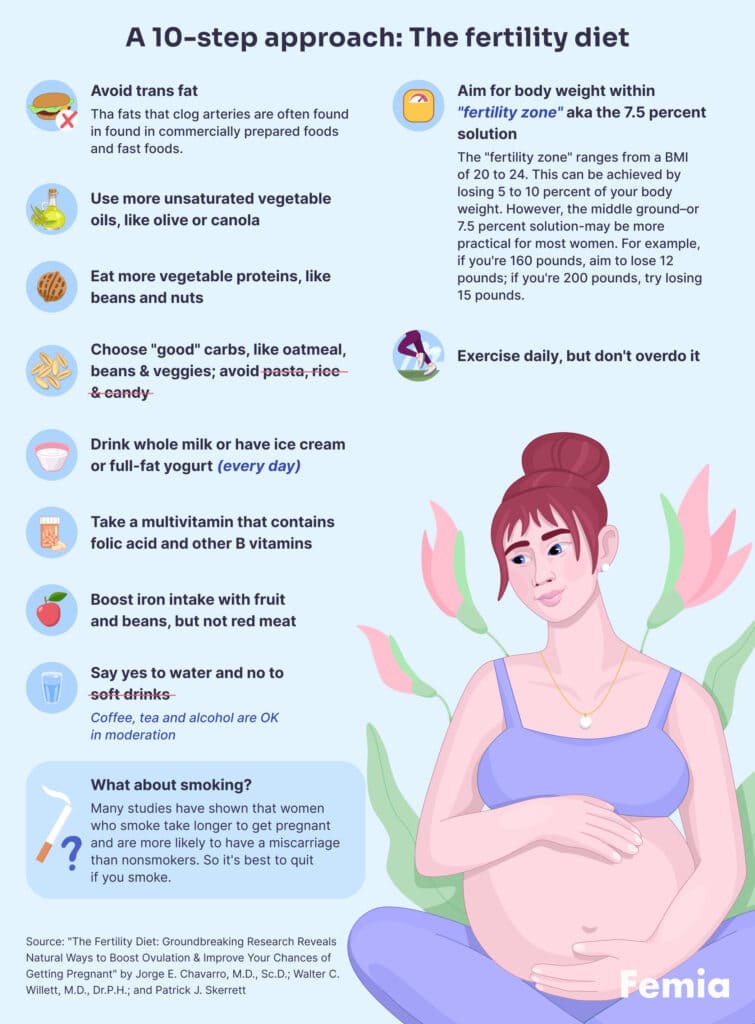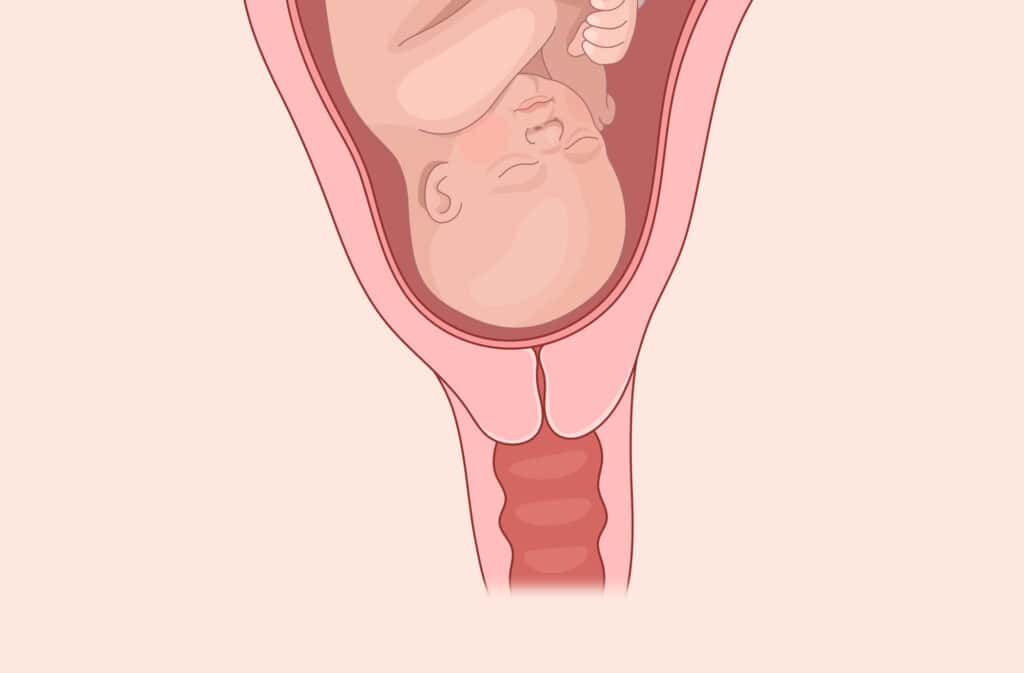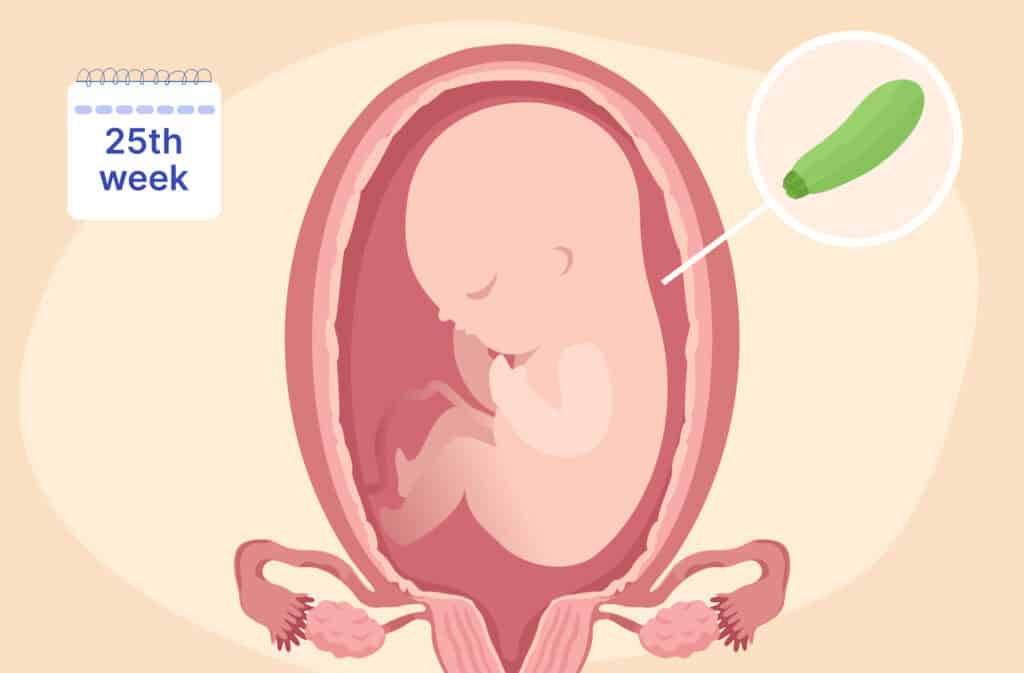Femia > Health Library > Getting Pregnant > Challenges > Getting pregnant at 40: Navigating the challenges and opportunities
Getting pregnant at 40: Navigating the challenges and opportunities

- Updated Feb 10, 2025
- Published
CRAFTED BY HUMAN
Crafted by human At Femia, we provide accurate and up-to-date information at every stage of your journey, from trying to conceive, pregnancy and postnatal support. All content is created by a real person based on in-depth research and own professional experience. Femia ensures that you will receive expert advice, strict accuracy and a personalized approach from our authors/medical experts. Learn more about our editorial policy.
FACT CHECKED
Fact checked At Femia Health, we maintain the highest standards of editorial excellence in delivering content focused on helping you conceive, guiding you through pregnancy, and supporting you postpartum. Explore our content review principles to learn how we ensure the accuracy and quality of our health and lifestyle tips for every stage of your journey.
- Getting pregnant at 40+ is possible but more challenging due to declining egg quality and quantity. Chances of conceiving naturally drop to about 5% per cycle.
- Fertility treatments like IVF (8-10% success rate per cycle) or egg donation (35% success rate) can increase odds of pregnancy for women over 40.
- There are increased health risks, but with proper care and lifestyle adjustments, many women have healthy pregnancies.
In recent years, the trend of delayed motherhood has become increasingly prevalent, with more women choosing to start their families later in life. And although there is no one age when a woman must get pregnant, conceiving at 35 and later tends to be more challenging and risky for both mother and baby’s health.
One of the biggest problems for having a baby over 40 is a decline in fertility. As women age, their ovaries produce less eggs, and the quality of those eggs also decreases. This also leads to a higher risk of fertility disorders that come with age.
And even advanced medicine, lifestyle changes and several fertility treatments available today can’t 100% guarantee successful conceiving in some cases. It is crucial to understand the age factor in fertility processes within the body and proactively consult a healthcare professional to find best options for you.
👉Find out more: Can Mucinex help you get pregnant? How to use it for better fertility
Let’s explore this topic in detail with chances of getting pregnant at 40, fertility treatments you may want to consider and proactive measures to take.
Femia has helped thousands of women over 40 optimize their fertility
Chances of getting pregnant at 40
Statistically, most women reach their fertility peak in their late teens to late 20s. That’s when they have more healthy eggs in their ovaries than abnormal ones. As women age, the quality and quantity of these eggs decrease, which leads to age-related infertility, miscarriage, and other issues, making it harder to conceive—both naturally and through IVF.
The key reason for challenging conceiving in women at 40 is increased aneuploidy rates—most eggs are aneuploid (abnormal). This simply means the eggs have an abnormal number of chromosomes —either too many or too few.
Chromosomes are like our body’s instruction manuals, and having the right number is important for a healthy pregnancy. As we age, it’s more common for our eggs to have this chromosome imbalance, which can make conceiving trickier.
When a woman is younger than 30, she has about an 85% chance to conceive within one year. At age 30, there is a 75% chance of falling pregnant in the first 12 months. So, the chance of getting pregnant declines to 66% at the age of 35 and 44% at the age of 40.
Aside from getting pregnant, there are also statistics on the chances of carrying a healthy baby. Women after 40 are more likely to experience a miscarriage than younger women – a 27% chance at age 40 compared to 16% at 30 or younger.
| Late 20s | 85% chance of conceiving in a year |
| Early 30s | 75% chance of conceiving in a year |
| 35-40s | 66-44% chance of conceiving in a year |
At 37, women have about 25,000 eggs, and by age 51 (which is an average age of menopause), they have about 1,000 eggs left. Each menstrual cycle uses some of your egg-containing follicles, but the majority of them will be lost through a natural degeneration process called atresia.
@femia.fertility Dreaming of a faster way to get pregnant? 🤰✨ Femia's got you covered with the smoothest path to natural pregnancy! Be part of our growing community of 500k+ women worldwide who've achieved their dreams with us. Download Femia app and let's start your journey!💕 #tryingtoconceive #ttcjourney #fertilityjourney #pregnancyover30 ♬ original sound - Femia fertility tracker
What to expect when trying to get pregnant at 40
Common challenges women face at 40+ when trying to get pregnant
- Decreased egg quality and quantity: As women age, the number of eggs decreases, and the remaining eggs are often of lower quality, which can make conception more difficult.
Increased risk of miscarriage: Women over 40 have a higher risk of miscarriage, partly due to the increased likelihood of chromosomal abnormalities in the eggs.
Hormonal imbalances: As women approach perimenopause, hormonal fluctuations can disrupt the menstrual cycle, making it harder to track ovulation and conceive.
Lower fertility rates: Natural conception becomes more challenging as fertility declines after age 35, and women over 40 may find it harder to become pregnant without assistance.
Increased risk of pregnancy complications: Older women are at a higher risk of complications during pregnancy, such as gestational diabetes, preeclampsia, and high blood pressure.
Health conditions: Conditions like fibroids, endometriosis, or other reproductive health issues become more common with age, potentially impacting fertility.
Longer time to conceive: It may take longer to get pregnant at 40+, even with no underlying fertility issues, due to the natural decline in fertility.
Limited IVF success rates: Although IVF can be an option, success rates decrease as age increases, and women over 40 often require multiple cycles to conceive.
What to expect when trying to get pregnant at 40
Fertility naturally declines as women age, particularly after the age of 35, due to a decrease in the number and quality of eggs. By the time a woman reaches 40, her egg reserve is significantly reduced, and the risk of chromosomal abnormalities, such as Down syndrome, increases. As a result, it can take longer to conceive, and the chances of miscarriage are higher.
For women in their 20s and early 30s, fertility is at its peak. The body produces a larger quantity of high-quality eggs, which increases the chances of conception. However, after 35, the likelihood of pregnancy drops, and assisted reproductive technologies like IVF may be recommended.
A getting pregnant by age chart can help illustrate these changes and offer a clearer understanding of how age impacts fertility, providing insights for those considering pregnancy at older ages.
Expert tips on how to get pregnant fast at 40
Getting pregnant at 40 can be challenging both mentally and physically. Let’s explore some recommendations and fertility treatment options you may want to consider to increase your chances of conceiving at 40:

1. Consider lifestyle changes to enhance fertility
- Balanced diet: choose a fertility diet rich in fruits, vegetables, whole grains, lean proteins, and healthy fats. Include foods high in antioxidants, folic acid, and omega-3 fatty acids.
- Manage stress: practice relaxation and mindfulness techniques. These may include therapy sessions, yoga practices, and meditation.
- Reduce caffeine and avoid alcohol: it’s recommended to reduce caffeine intake to less than 200 mg per day and avoid alcohol to assist your body’s fertility process.
- Regular exercise: try to have at least 30 minutes of physical activity a day – could be walking, gym, yoga or any other kind of activity you prefer.
- Quit smoking: smoking negatively affects both female and male fertility. Quitting smoking can improve your chances of conception.
👉Find out more: Enhancing fertility naturally: A guide to fertility supplements and foods for women
2. Track your ovulation
It is a crucial step in understanding your fertility and enhancing your chances of conception. The Femia app offers a comprehensive solution to help you monitor your menstrual cycle and identify your most fertile days. By recording daily symptoms, moods, and other health indicators, Femia provides personalized insights tailored to your unique cycle.
3. Supplements and vitamins that support fertility
- Folic acid (Vitamin B9): Folic acid is essential for healthy cell division and is crucial for women trying to conceive. It helps prevent neural tube defects in the early stages of pregnancy. Taking 400-800 mcg daily is recommended.
Vitamin D: Vitamin D is important for regulating hormones and supporting reproductive health. It helps improve ovarian function and is linked to better fertility outcomes. Women with low levels of vitamin D may have difficulty conceiving.
Omega-3 fatty acids: Found in fish oil and flaxseed, omega-3s support hormone production and improve egg quality. They also help reduce inflammation in the body, promoting overall reproductive health.
Coenzyme Q10 (CoQ10): CoQ10 is an antioxidant that helps improve egg quality by supporting energy production in cells. It is particularly beneficial for women over 35, as egg quality tends to decline with age.
Zinc: Zinc plays a vital role in hormone regulation and is essential for both male and female fertility. It helps with ovulation, improves sperm quality, and supports a healthy pregnancy.
Iron: Low iron levels can lead to anemia, which can affect fertility. Ensuring adequate iron intake supports overall reproductive health and helps in maintaining healthy uterine function.
Vitamin E: This antioxidant helps protect reproductive cells from oxidative stress and may improve the quality of eggs and sperm. It also supports the immune system and enhances overall fertility.
Selenium: Selenium is essential for thyroid function and helps protect eggs and sperm from damage. It also supports a healthy immune system and can help improve the chances of successful conception.
Myo-inositol and D-chiro-inositol: These two forms of inositol are often recommended for women with PCOS, as they can help regulate insulin levels, improve egg quality, and promote regular ovulation.
Always consult with a healthcare provider before starting any new supplements, as they can interact with other medications and may not be suitable for everyone.
4. Consult a specialist
Consulting an OB-GYN or a fertility specialist is essential when you want to get pregnant at 40. The doctor can perform tests to assess your ovarian reserve, hormonal levels, and overall reproductive health, recommending personalized treatment plans based on your specific case.
Depending on your request, doctors may calculate your chances of getting pregnant naturally and offer treatment options if possible, significantly increasing chances of successful conceiving and pregnancy.
If chances are low, doctors may suggest advanced fertility treatments, such as IVF or IUI, which have been shown to be effective in different age groups throughout the years. And early consultation is a game-changer when you try to conceive at 40.
Femia offers personalized ovulation tracking and fertility tips for women
Medical options for getting pregnant at 40
When we talk about success rates for fertility treatments, it’s important to understand what we mean by “success.” In most cases, the success rate refers to the live birth rate — that is, the percentage of treatments that result in a baby being born. This is different from the conception rate, which only measures whether pregnancy occurs.
With advanced research and technology used in the healthcare domain, there are several fertility treatments available, and each varies in success rates, particularly for women over 40:
1. In vitro fertilization (IVF)
In this option, doctors retrieve your eggs, fertilize them with sperm in a lab, and transfer the resulting embryos to your uterus.
Success rate: approximately 8–10 % per cycle for women over 40, with a significant drop off with each additional year of age.
2. Intrauterine insemination (IUI)
Sperm is washed and concentrated, then placed directly into the uterus around the time of ovulation.
Success rate: around 6–8 % per cycle per cycle for women over 40, which is less effective than IVF.
3. Egg donation
In this treatment, doctors use donor eggs from a younger woman, fertilize them with the partner’s or donor’s sperm, and implant them in your uterus.
Higher success rates, around 35% per cycle, because of the healthier and younger eggs.
| In vitro fertilization (IVF) | 8–10% per cycle |
| 6–8% per cycle | |
| Egg donation | 35% per cycle |
Pregnancy after 40: risks and considerations
Pregnant women older than 40 have a higher risk of complications from pregnancy and childbirth. The most common complications include the following:
- Gestational diabetes;
- Preeclampsia;
- C-section;
- Genetic abnormalities;
- Premature birth;
- Miscarriage.
Prenatal care can be helpful in mitigating most of the risks when you have a baby after 40. Research suggests that older parents receiving proper prenatal care have fewer differences in pregnancy outcomes compared to those under 40.
Prenatal care for older mothers often includes:
- Lifestyle changes to adopt a healthier lifestyle before and during pregnancy. This includes nutrition-rich food, regular exercise, quitting smoking and alcohol, and high sleep quality.
- Having regular prenatal visits;
- Choosing a perinatal center for pregnancy and birth specializing in high-risk pregnancies;
- Treating any underlying health conditions before conceiving also greatly helps in supporting fertility.
Societal perspectives: is it selfish to have a baby at 40?
Traditionally, society favored having children at a younger age. And this is a modern case too since people still love to talk about biological clocks and the lower energy levels needed for parenting.
Luckily, this isn’t the only opinion and more people understand the importance of having education and career before thinking about having babies. Despite this growing trend, some judgment and stigma may still be here and rooted in concerns about health risks and potential generational gaps between parents and children.
While health risks do increase with age, proper prenatal care with advanced medical solutions now significantly reduces many of these dangers. Concerns about energy levels and generational gaps are often exaggerated, as most older parents maintain healthier lifestyles and have a different outlook on life mature compared to younger ones.
Having babies later in life may come with risks and issues that will have to be solved along the way, but financial stability, emotional maturity and stronger relationships also contribute to a supportive environment for raising children.
The decision on when and how to have kids is deeply personal and should be respected since it often results in more caring, dedicated, and prepared parenting.
Questions from the Femia community
How might having a baby at 40 impact my finances?
The financial picture of having a baby at 40 can vary widely from person to person. For some, it might not be very different from having a baby in their 30s. In fact, some women find they're in a more stable financial position at 40, which can make the journey easier.
That said, there can be additional costs to consider, especially if fertility treatments are needed. These treatments can add to the overall expense, but they're not a given for everyone.
Here are a few financial aspects to think about:
• Your career and income situation
• Health insurance coverage
• Potential need for fertility treatments
• Childcare options and costs
• Long-term financial planning
The key is to assess your own circumstances and plan accordingly.
How will pregnancy at 40 affect my career path or job opportunities?
Pregnancy at 40 can impact a woman's career, particularly if she holds a demanding job. However, balancing work and parenting may be easier with night and day nannies, career adjustments, and family help. Many find ways to adapt and thrive.
For some women, being 40 might mean they're in a more secure position in their career.
If you're considering pregnancy at 40, it might be helpful to speak with other working mothers in your field or industry.
What emotional challenges might I face becoming a mom later in life?
Becoming a mom in your 40s can bring up all sorts of feelings. You might feel excited and happy one moment, then worried or unsure the next. That's completely normal!
You might wonder about your health, your baby's wellbeing, or how it'll fit with your work life. You might even worry about what others think. But remember, every mom-to-be has worries, no matter their age.
The good news is, you don't have to face these feelings alone. Here are some friendly tips:
• Talk to people you trust about how you're feeling. They might surprise you with their support!
• Your doctor is there to answer questions and look after your health. Don't be shy about asking them anything.
• If you're trying to get pregnant, a fertility specialist can be a great guide.
The bottom line
Becoming a mom at 40 or beyond is a unique journey that comes with its own set of experiences and considerations. While it’s true that fertility naturally declines with age, many women successfully become mothers in their 40s and thrive in this role.
Every woman’s path to motherhood is different. Some might be first-time moms, while others may already have parenting experience. Some may choose single parenthood, while others may have partners. Whatever your situation, it’s important to remember that there’s no one “right” way to become a mother.
Remember, consulting with a doctor can offer personalized advice based on your individual circumstances. They can help you navigate any challenges and celebrate the exciting journey ahead.
References
- Owen, Amy, and Paul B. Sparzak. “Age Related Fertility Decline.” PubMed, StatPearls Publishing, 2022, www.ncbi.nlm.nih.gov/books/NBK576440/.
- Delbaere, Ilse, et al. “Knowledge about the Impact of Age on Fertility: A Brief Review.” Upsala Journal of Medical Sciences, vol. 125, no. 2, 22 Jan. 2020, pp. 167–174, https://doi.org/10.1080/03009734.2019.1707913.
- Delbaere, Ilse, et al. “Knowledge about the Impact of Age on Fertility: A Brief Review.” Upsala Journal of Medical Sciences, vol. 125, no. 2, 22 Jan. 2020, pp. 167–174, https://doi.org/10.1080/03009734.2019.1707913.
- noble.dana. “What You Need to Know about Pregnancy after Age 40 – Mayo Clinic Press.” Mayo Clinic Press, 18 Dec. 2023, mcpress.mayoclinic.org/pregnancy/what-you-need-to-know-about-pregnancy-after-age-40/#:~:text=Egg%20quantity%20and%20quality%20diminishes&text=In%20puberty%2C%20she%20has%20300%2C000. Accessed 4 Aug. 2024.
- Orlowski, Michelle, and Manbeer S. Sarao. “Physiology, Follicle Stimulating Hormone.” PubMed, StatPearls Publishing, 2023, www.ncbi.nlm.nih.gov/books/NBK535442/#:~:text=Follicle%2Dstimulating%20hormone%20(FSH).
- “Period Irregularities to Get Checked Out.” Mayo Clinic, www.mayoclinic.org/healthy-lifestyle/womens-health/in-depth/menstrual-cycle/art-20047186#:~:text=Menstrual%20bleeding%20might%20happen%20every.
- Warner, Lee, et al. “CDC Releases a National Public Health Action Plan for the Detection, Prevention, and Management of Infertility.” Journal of Women’s Health, vol. 24, no. 7, July 2015, pp. 548–549, https://doi.org/10.1089/jwh.2015.5355. Accessed 16 July 2020.
- Armstrong, Sarah, and Valentine Akande. “What Is the Best Treatment Option for Infertile Women Aged 40 and Over?” Journal of Assisted Reproduction and Genetics, vol. 30, no. 5, 29 Mar. 2013, pp. 667–671, https://doi.org/10.1007/s10815-013-9980-6.
- Bracewell-Milnes, Timothy, et al. “Exploring the Knowledge and Attitudes of Women of Reproductive Age from the General Public towards Egg Donation and Egg Sharing: A UK-Based Study.” Human Reproduction (Oxford, England), vol. 36, no. 8, 6 July 2021, pp. 2189–2201, www.ncbi.nlm.nih.gov/pmc/articles/PMC8648294/, https://doi.org/10.1093/humrep/deab157. Accessed 19 Apr. 2022.
- Zapata-Masias, Yesenia, et al. “Obstetric and Perinatal Outcomes in Women ≥40years of Age: Associations with Fetal Growth Disorders.” Early Human Development, vol. 100, Sept. 2016, pp. 17–20, https://doi.org/10.1016/j.earlhumdev.2016.04.010. Accessed 28 May 2020.
- ACOG. “Having a Baby after Age 35: How Aging Affects Fertility and Pregnancy.” Www.acog.org, Oct. 2020, www.acog.org/womens-health/faqs/having-a-baby-after-age-35-how-aging-affects-fertility-and-pregnancy.
- Zapata-Masias, Yesenia, et al. “Obstetric and Perinatal Outcomes in Women ≥40years of Age: Associations with Fetal Growth Disorders.” Early Human Development, vol. 100, Sept. 2016, pp. 17–20, https://doi.org/10.1016/j.earlhumdev.2016.04.010.

Learn how pregnancy after miscarriage may go in terms of fertility, timing, emotional and psychical recovery.

Use this simple guide to check your cervix regularly. Knowing how your cervix evolves during your cycle can help identify specific early pregnancy changes.

Discover what happens at 25 weeks pregnant, from baby size and development to symptoms and things to avoid for a healthy pregnancy.

